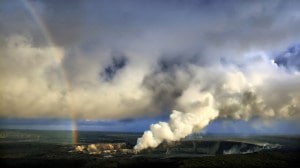Mikveh, requiescat: Do you know these words that appeared in the news this week?
While browsing through news and views on digital platforms and newspapers this week, we spotted words such as 'joie de vivre' and 'requiem'. Here's what they mean, and how they are used in the English language.
 Here are interesting words and expressions that were in the news this week. (Source: Pixabay)
Here are interesting words and expressions that were in the news this week. (Source: Pixabay) A weekend followed by a mid-week holiday is a perfect moment to catch up with news around the world you would otherwise miss due to your normal routine. That’s exactly what happened this week. While browsing through news and views on digital platforms and newspapers, I came across a few interesting words and expressions that had me looking up their meaning and etymology.
According to media reports, a mikveh, made of oak wood and dating roughly to 17th and 18th centuries, was discovered in the city of Oświęcim in Poland earlier this year. The city is better known by its German name Auschwitz, where the Nazis built the biggest concentration camp.
A mikveh, also spelled as mikvah or miqwe, is a pool of water, in the open or stored, in Judaism in which one bathes for ritual cleansing. It is often part of a synagogue, the Jewish prayer house. Even the ocean or a lake can be a mikveh. The ritual purification is prescribed in the Jewish code of law, Mishna or Mishnah. Its use in modern times is not widespread among Jews. However, some still use mikveh and converts are required by Halakha, the legal tradition, to undergo ritual bath in a mikveh.
The last time the word got some media attention was in 2014 when the police in the United States charged Barry Freundel, a rabbi from a Jewish congregation in Georgetown, with secretly videotaping naked women at his synagogue’s mikveh.
A rabbi is a Jewish religious leader who is qualified to teach Judaism and is in charge of a synagogue.
Another word with a depth of meaning and which you do not often encounter is requiem, used in the headline of a nostalgic account of a senior journalist about the building of The Statesman newspaper at the crossing of Chowrunghee- Chittaranjan Avenue in Kolkata. The iconic structure, revered and held in awe by thousands of readers, is being turned into a shopping mall.
It comes from the first word of the Mass for the Dead in Latin liturgy: Requiem æternam dona eis, Domine… which translated into English would read: rest eternal grant them, O Lord…
In English, it refers to a mass or a musical composition in honour of a dead person. It is similar in meaning to elegy, dirge, lament or threnody.
A related word, requiescat, is a prayer for the repose (rest) of the dead and also comes from Latin requiescat in pace (abbreviated as R.I.P.), literally “may she (or he) begin to rest in peace”.
A phrase from the same report was joie de vivre: “The reporters’ room in The Statesman office in those days was a centre of conviviality – bringing together seniors and greenhorns like me, in an atmosphere of joie de vivre…”
A French phrase, its literal translation is joy of living. In English, it means the extreme enjoyment of living, taking delight in simply being alive. The phrase was first used in the French language when writer Émile Zola published a book entitled La Joie de Vivre in 1884. By the early 1900s, the idea of living with a joie de vivre spread from France into other Western countries and the phrase entered the English language.
Savoir faire (to know how to do) and savoir vivre (to know how to live) are two other similar sounding French borrowings. The first implies “an almost instinctive ability to act appropriately in a given situation, and the other an art of knowing how to live well, graciously and elegantly.
More word hunting next week.





- 01
- 02
- 03
- 04
- 05

































